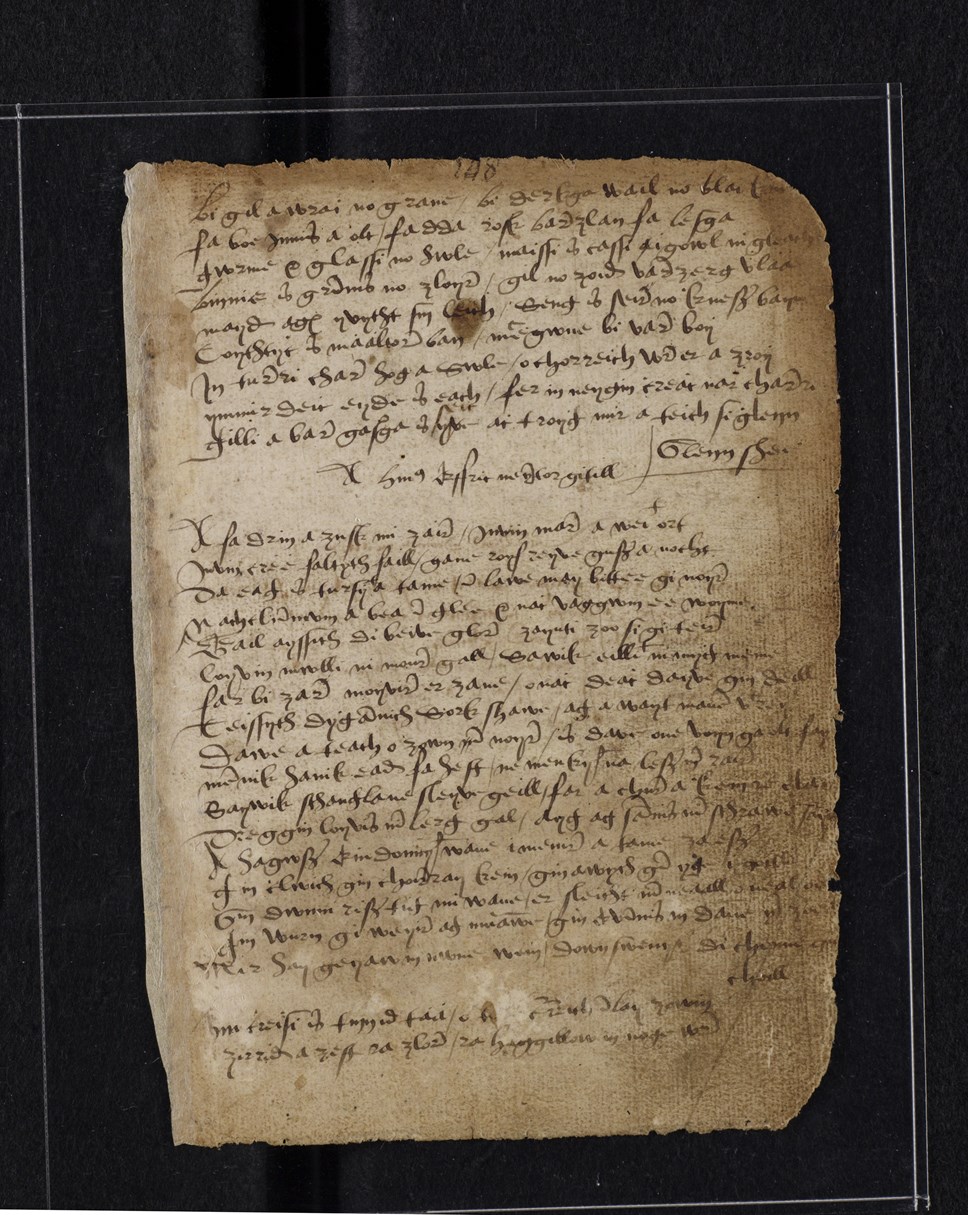
Library manuscripts inscribed in prestigious UNESCO register
The National Library of Scotland’s renowned early Gaelic manuscripts have been inscribed in the UNESCO Memory of the World Register.
The Library has the largest collection of Scottish Gaelic manuscripts in the world, with the earliest, written from the 14th up to the early 18th century, now being recognised for their exceptional historical and linguistic significance.
The Library’s Gaelic Manuscripts Curator, Dr Ulrike Hogg said:
“Only a small number of Gaelic manuscripts with a Scottish connection survive from this early period, and our collection of more than 60 volumes is unparalleled in its scale and coverage.
“The Gaels in Ireland and Scotland shared a rich learning and literary tradition, and our collection provides a fascinating Scottish perspective. Passages in Latin and occasional samples of texts in Scots or English also show how actively Gaelic Scots were engaged with multiple European cultures.
“We are delighted to have these manuscripts listed in the Memory of the World Register – it highlights their outstanding historical and cultural value.”
Matthew McMurray, Secretary of the UK UNESCO Memory of the World Committee, said:
“The manuscripts offer a snapshot of Gaelic life in Scotland which would otherwise have been lost to history. Its scale and coverage make it the pre-eminent collection for study of the Gaelic culture in Scotland and vitally important for understanding the rich and diverse cultural landscape of the British Isles.”
The majority of the manuscripts are written in Gaelic script, and are often attractively decorated. The manuscripts cover a wide range of topics. Medical manuscripts and poetry collections form particularly strong groups, but there are also historical texts, heroic tales, saints’ lives, prayers, charms, genealogy, and place-name lore.
Most of the scribes used a high-register literary language that was shared by Gaels in Ireland and Scotland over a period of more than 1000 years, which usually concealed the writers’ own dialect. The National Library holds a notable exception in one of the most important volumes of the collection – the early 16th-century Book of the Dean of Lismore. This is a substantial Gaelic poetry collection written in Older Scots orthography, providing a unique first impression of the sound of a regional Scottish Gaelic dialect.
UNESCO initiated the Memory of the World Register in order to highlight archival and library items of outstanding historical value.
More information about Gaelic manuscripts can be found on the National Library of Scotland website.
#InternationalArchivesDay
Contact Information
Notes to editors
The National Library of Scotland
The National Library of Scotland is a major European research library and one of the world’s leading centres for the study of Scotland and the Scots - an information treasure trove for Scotland’s knowledge, history and culture.
The Library’s collections are of world-class importance. Key areas include digital material, rare books, manuscripts, maps, music, moving images, official publications, business information, science and technology, and modern and foreign collections.
The Library holds more than 26 million physical items dating back over 1000 years in addition to a growing library of e-books, e-journals and other digital material. The collection includes more than four million books, eight million manuscripts, two million maps and more than 45,000 films and videos. Every week the Library collects around 3,000 new items. Most of these are received free of charge in terms of Legal Deposit legislation.
